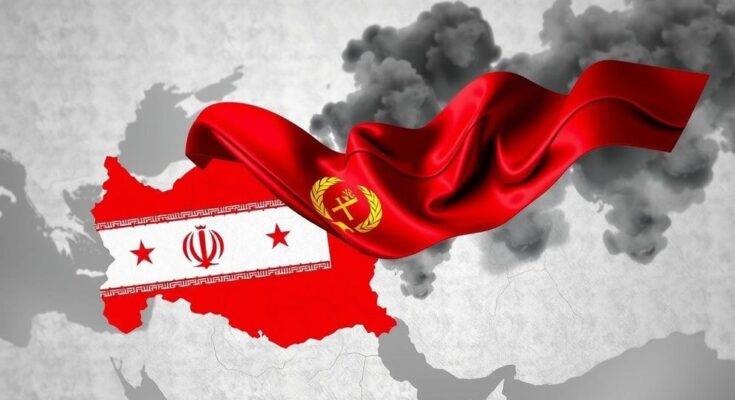Iran maintains its support for Bashar al-Assad as opposition forces intensify their military campaign. Despite warnings of troop involvement, significant Iranian mobilization has not been observed. The situation is complicated by Turkey’s backing of Syrian rebels, which poses new challenges for Iranian interests in the region. The potential consequences of further escalation could affect the broader Middle Eastern geopolitical landscape.
Iran’s strategic stance on the ongoing Syrian conflict remains firm, emphasizing its support for President Bashar al-Assad amidst intensified military actions by opposition forces. Iranian Foreign Minister Abbas Araghchi highlighted discussions with Russian and Turkish counterparts about the necessity for political dialogue between the Syrian government and “legitimate opposition groups.” Iran has framed the uprising as part of an American-Zionist conspiracy, aiming to portray rebel forces as foreign-backed. Although Tehran has hinted at the possibility of deploying troops to Syria, concrete evidence of significant mobilization has yet to emerge.
The recent offensive initiated by the Hayat Tahrir al-Sham (HTS) group reflects a shift in the dynamic of the Syrian conflict. Historically an al-Qaeda affiliate, HTS has sought to rebrand itself as a national entity while pursuing aggressive territorial gains. This offensive poses a critical challenge to Iran’s interests, particularly given the geopolitical complexities swirling around Turkey’s involvement. Turkish President Recep Tayyip Erdogan has voiced support for the opposition, motivated in part by Turkey’s longstanding issues with Kurdish military activities along its southern border.
The Syrian conflict, which began in 2011, has morphed into a multifaceted war involving regional and international actors. Iran has consistently backed President Assad’s regime, viewing it as essential for its influence in the region and as a counterweight to US and Israeli dominance. The involvement of Turkey, supporting opposition groups such as HTS, complicates Iran’s strategic calculus, positioning Turkey as both a partner and a threat. The recent regional tensions, exacerbated by Israel’s actions in Gaza, further fivefolds the importance of the situation in Syria as a geopolitical chessboard for Iran.
Iran’s position in the Syrian conflict underscores its commitment to the Assad regime while illustrating the complexities introduced by external actors like Turkey. The potential for direct Iranian military involvement looms, but skepticism remains regarding its implementation amid ongoing regional volatility. As Syria approaches critical thresholds, the ramifications of such actions could spill beyond its borders, affecting broader Middle Eastern dynamics and Iranian regional standing.
Original Source: www.aljazeera.com




